
Helpful Language Phrases to Learn Before You Travel
Considering studying abroad or taking a gap year in a country where English is not the mother tongue? Before you go, here are some phrases to learn when traveling!

After years of traveling to countries where English is the not the official language, I’ve taken note of phrases and questions that I consistently need to know in order to communicate with residents. These are terms that would make exploring during your gap year considerably easier (in terms of daily life, at least).
Before buckling down to devote yourself to this Go Overseas crash course edition of 'Language Learning 101' for your study abroad experience, keep in mind that words like Please, Thank You, Excuse Me, and the numbers 1-10 are essential basic phrases to learn in any language, in almost every travel situation -- learn those first. Beyond that, a few more phrases are essential to know as you embark on your language journey.
Here are 7 categories of phrases to learn when traveling the world or taking your gap year.
1. Language phrases to know in transit
Most airports will have English as a secondary language on signs throughout the facility and on visa, customs, and immigration documents. Not every agent however, speaks perfect English (if at all) and once you depart from the airport, you’ll encounter the belly of the beast: taxis, buses, trains, tuk-tuks, peddlers, and more.
To prepare for what should you learn before traveling to another country, you should have pertinent addresses and important phrases to know when traveling written on a piece of paper in the local language, an analog watch at all times, and know the following words (and their answers):
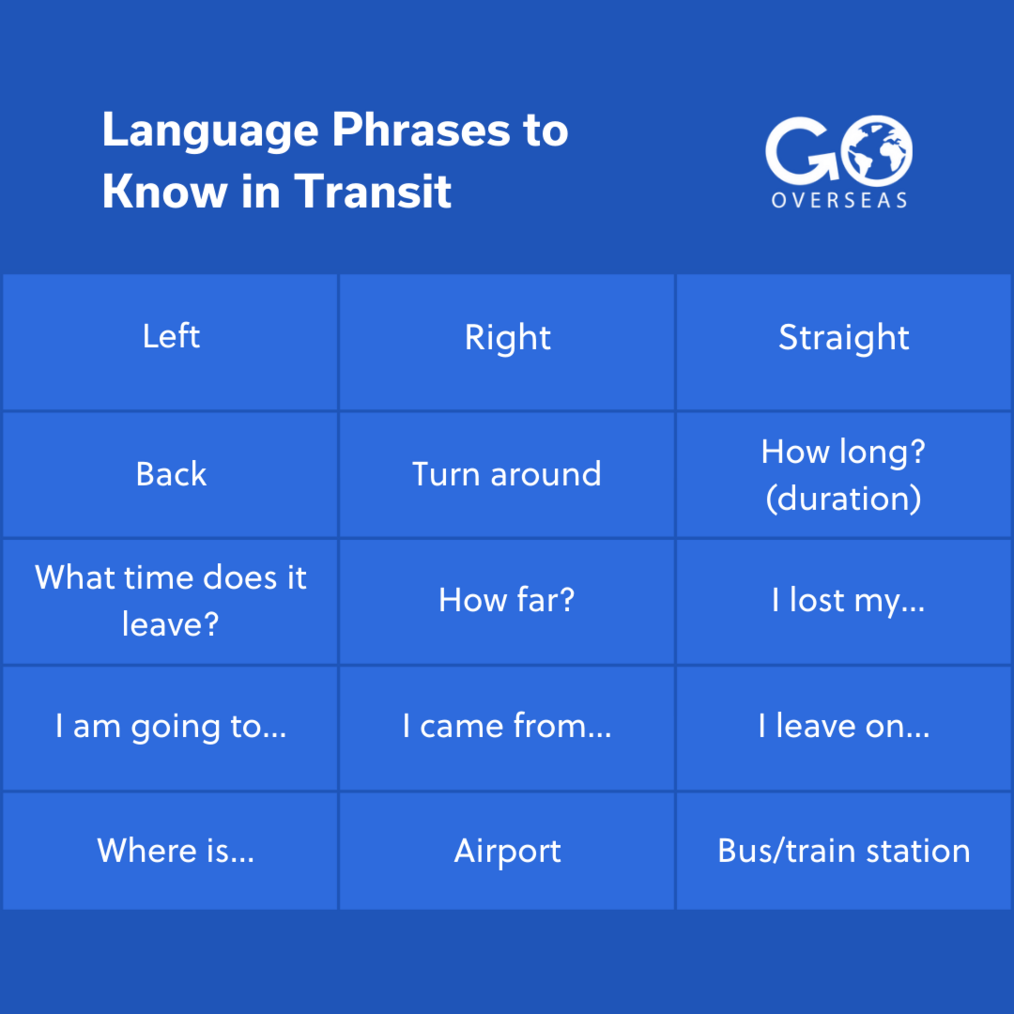
Read more: Why You Should Learn a Second Language
2. Language phrases that will cover your health and wellness
If you have an illness, medication, or want to be prepared in the event of a travel bug, you should know these health and wellness phrases. In addition to being equipped with a document stating your health issues in the local language, these terms can help further explain any concerns.
You don’t have to have a chronic illness or allergy to be prepared. You should know basic hygiene and personal wellness phrases too. I’ve been the least prepared when it comes to personal wellness, as a woman, and have learned my lesson the hard way in the form of very awkward miming (read: it’s that time of the month again).
Here are some helpful terms to learn as you improve your language skills:
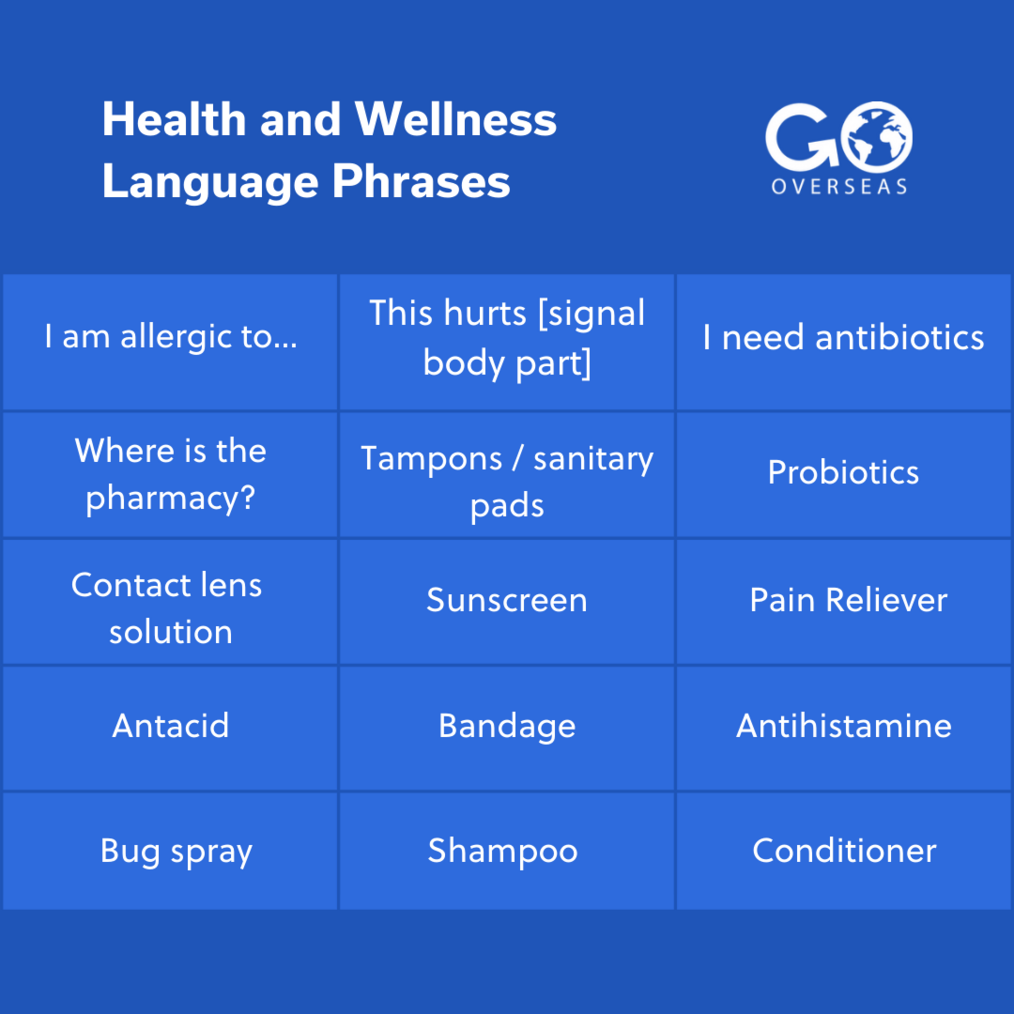
3. Accommodation phrases you should know in every language
To make your stay as comfortable as possible, make sure you know these important words and phrases regarding your accommodations. Whether it is a dorm, homestay, hotel, Airbnb, or hostel, the questions remain the same.
They are mostly terms you wouldn’t have to use until you absolutely needed to, which might make your stay extremely frustrating if you aren’t prepared.
Here are the top accommodation phrases to know:
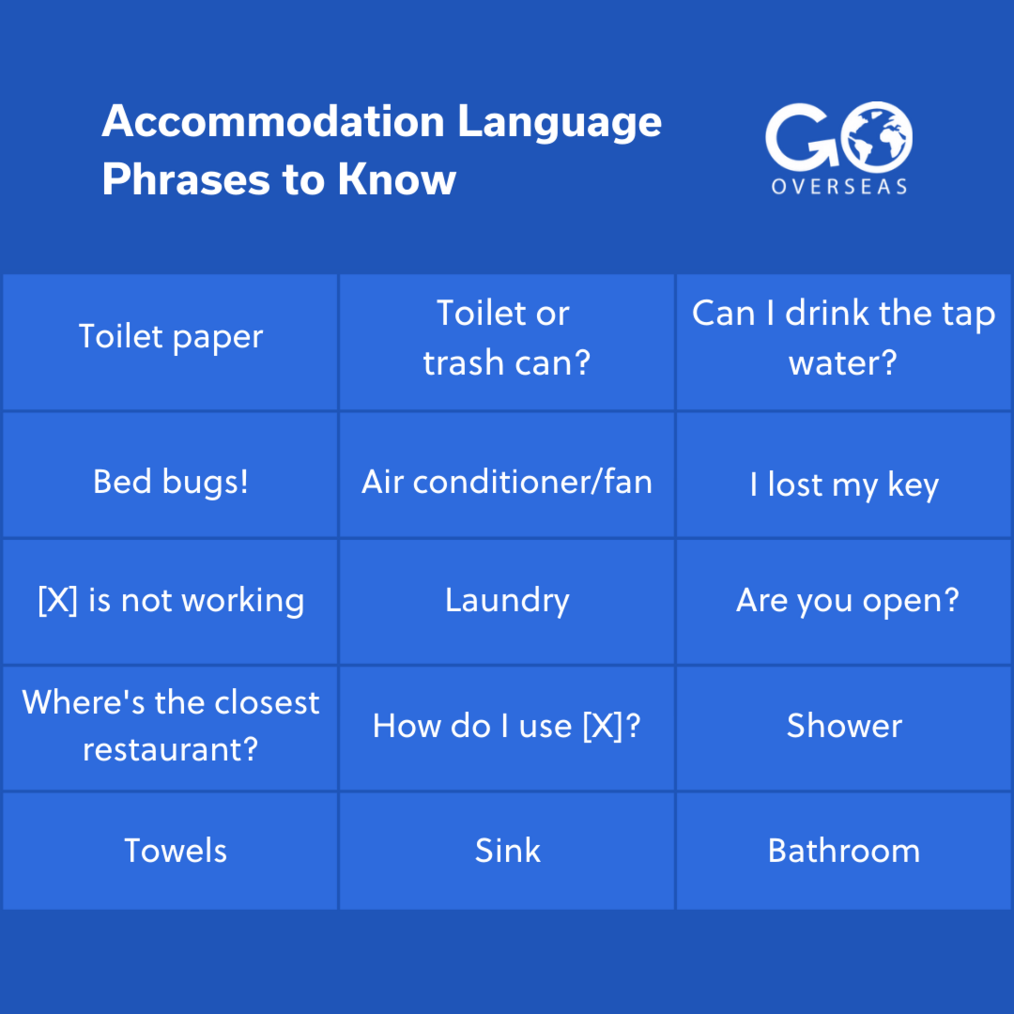
4. Dining phrases that make or break your restaurant experience overseas
I’ve been to cities on a whim where I’ve forgotten to learn essential dining terms in the local language (on top of not realizing that I’d be one of the only tourists in a place where no one spoke English)... It was terrifying.
As a solution, I was forced to impede on other patrons’ private dining experiences to point out the food and bottled water I wanted (face palm). Forget about asking for the bathroom or scrutinizing the check -- I had no way to communicate beyond pointing.
As a lesson, I realized these were key words and phrases I should always be able to say if communicating with hand gestures didn’t seem possible. Gladly I don’t have allergies or an aversion to spicy food. If you do, then put this on the top of your list.
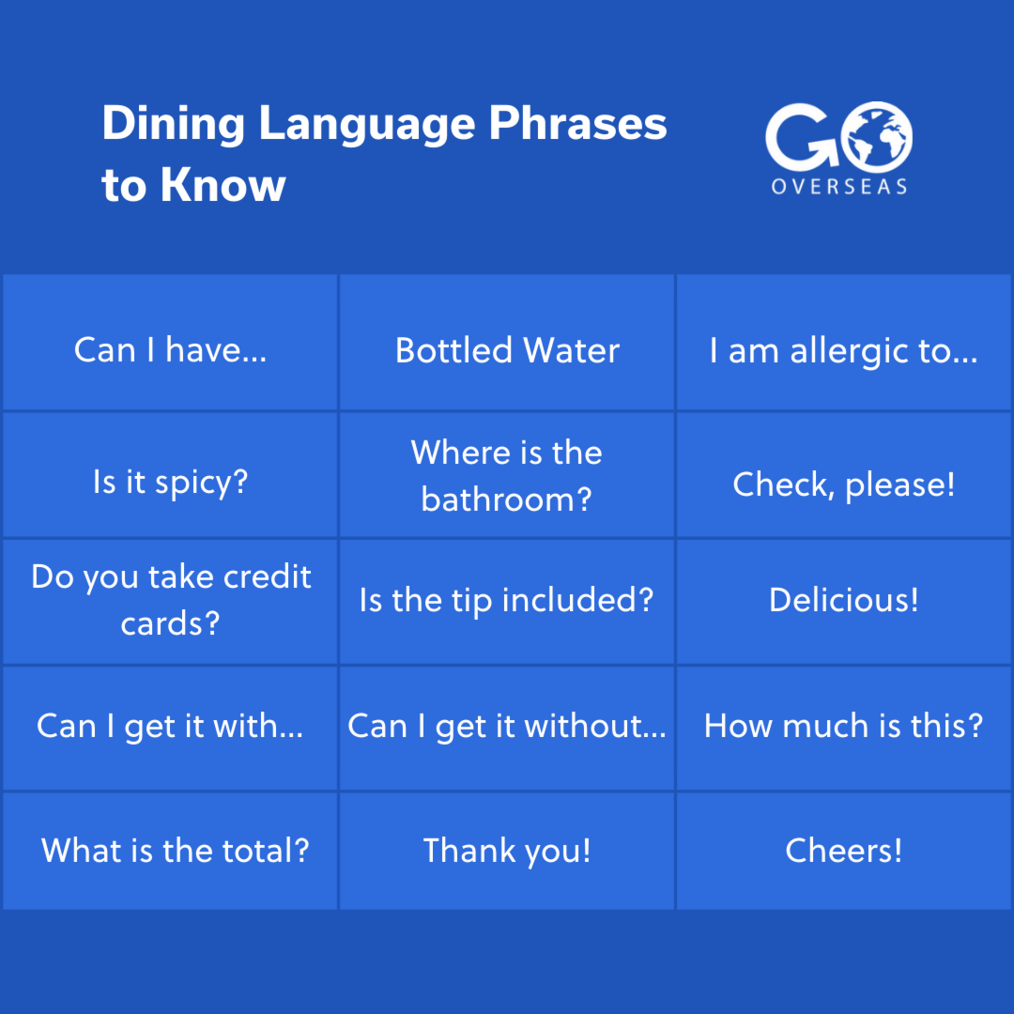
5. Shopping questions to know in every language
Many of parts of the world have and encourage haggling as a form of commerce. Even if you don’t plan to buy souvenirs, you’ll quickly come across a situation where you need to use shopping-related language skills. The less you know though, the less you’ll be able to negotiate against tourist price hiking.
So if you are on a budget (or trying to be), take notes of these questions:
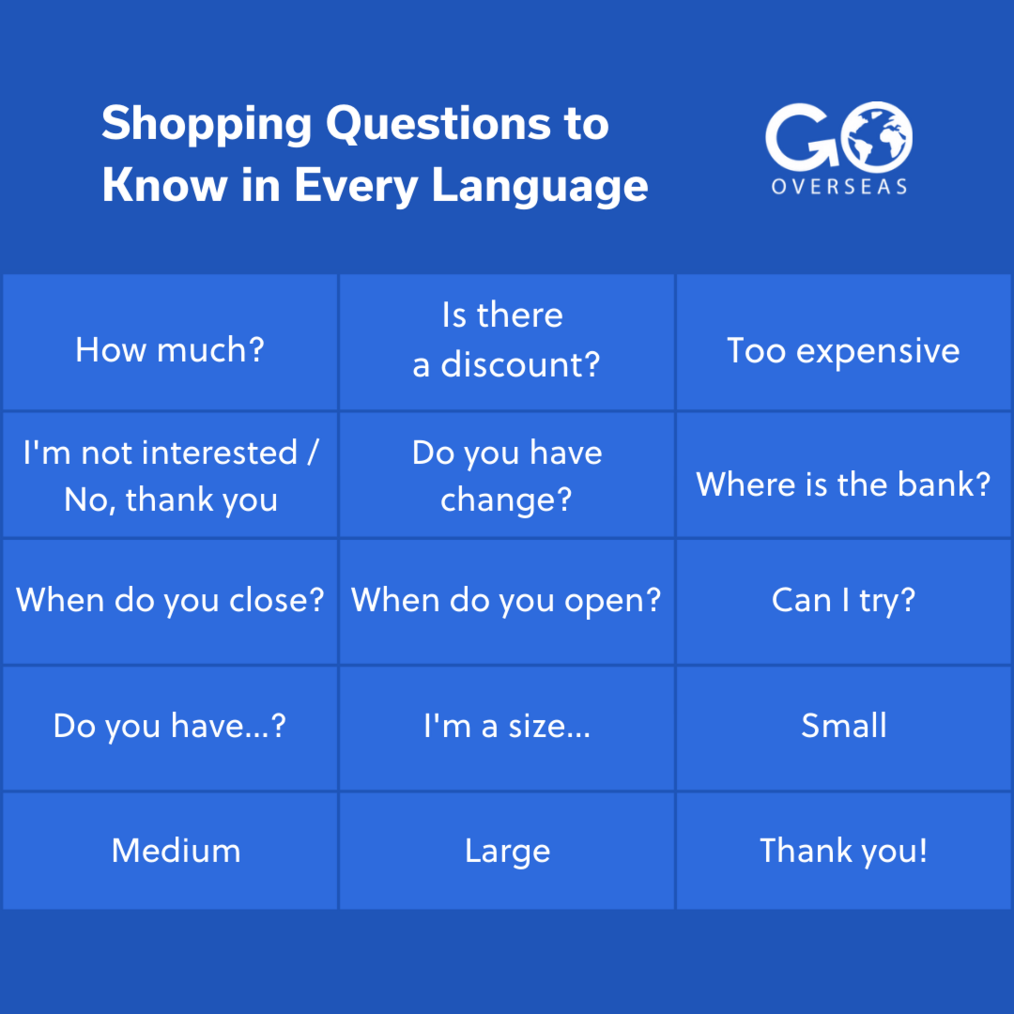
6. Language phrases that help when meeting new people
Meeting new people and making friends is the best way to learn a local language. But first you’ll have to get past conversation-starter prerequisites like introductions and basic questioning.
If you want to learn from new friends, indicate early on that you are learning and ask them to speak slowly. For the best results, carry a pocket-sized dual-language dictionary to help along the way. I once had a one-hour conversation with a French local straight from an English-French translator paired with my high school French skills. We certainly lost a few things in translation but felt so proud to both learn new words.
Here are helpful phrases to know when meeting new people:
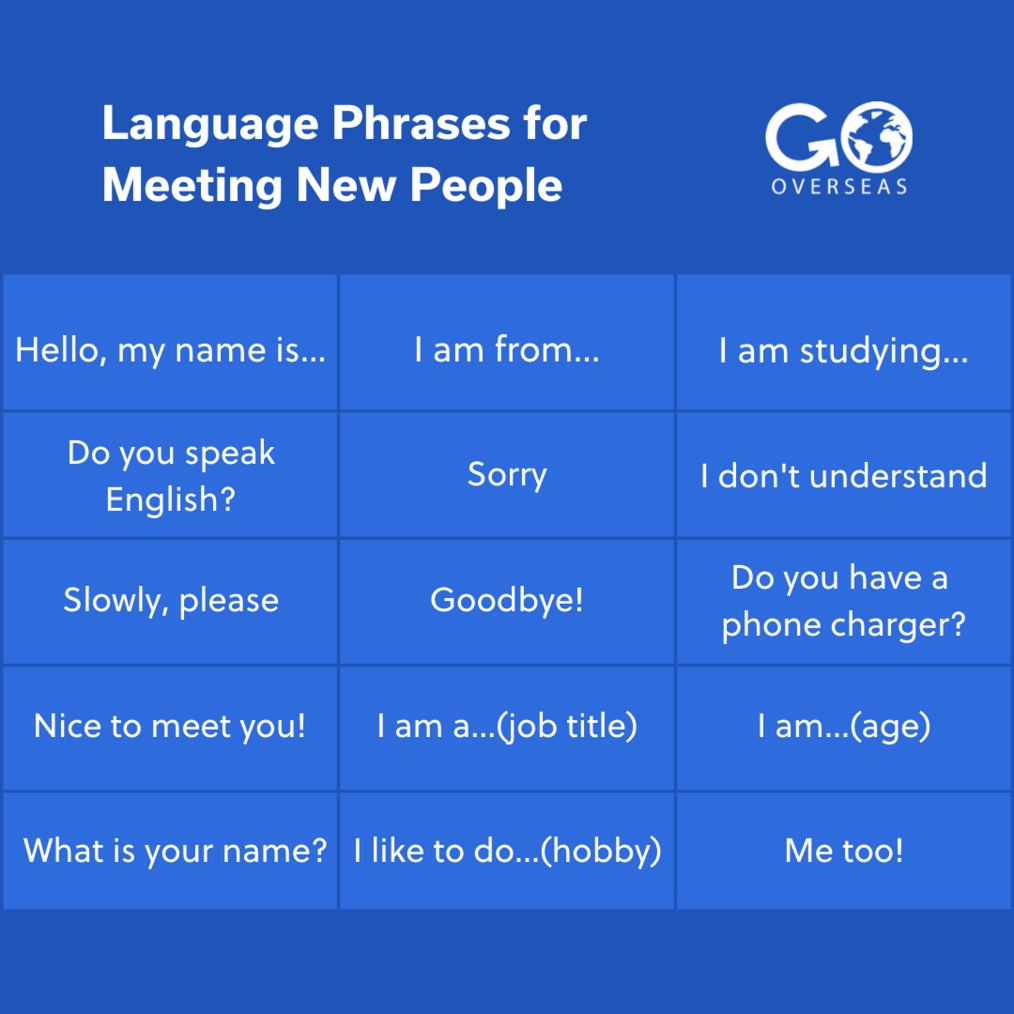
7. Phrases to know in every language in case of an emergency
While it’d be great to never have an emergency, stuff happens. We can try our best to travel with caution and use our best judgement in every situation, but there are some words and phrases that are essential to know in the event of an emergency. Sometimes we get hurt, feel unsafe, or are stuck in a sticky situation.
While traveling abroad, learn each country’s respective emergency number (surprise: it is not always 911) and these phrases to help others help you:
![Emergency Phrases to Know in Every Language [Chart] Emergency Phrases to Know in Every Language [Chart]](https://www.gooverseas.com/sites/default/files/styles/1014x/public/images/2022-09-36/7.png?itok=ZS-465XI)
Consider taking a language course
Depending on your gap year program, you might need to learn a few extra important phrases to know when traveling abroad. For instance, a Costa Rican wildlife volunteer, for instance, will need to know more animal names, while a study abroad program in Italian culinary arts would require a more elaborate gastronomic vocabulary.
If you are looking for more structured language lessons, consider taking language classes in your gap year. You can find local classes or even study abroad programs that offer language instruction. You can even prepare in advance for your travels abroad by taking an online language course. This will allow you to learn from native speakers and immerse yourself in a new culture!
When you're ready to learn the language, it's time to get out there and practice. Take advantage of your travels abroad to expose yourself to new people and places. You'll have plenty of opportunities to practice your new language skills.






